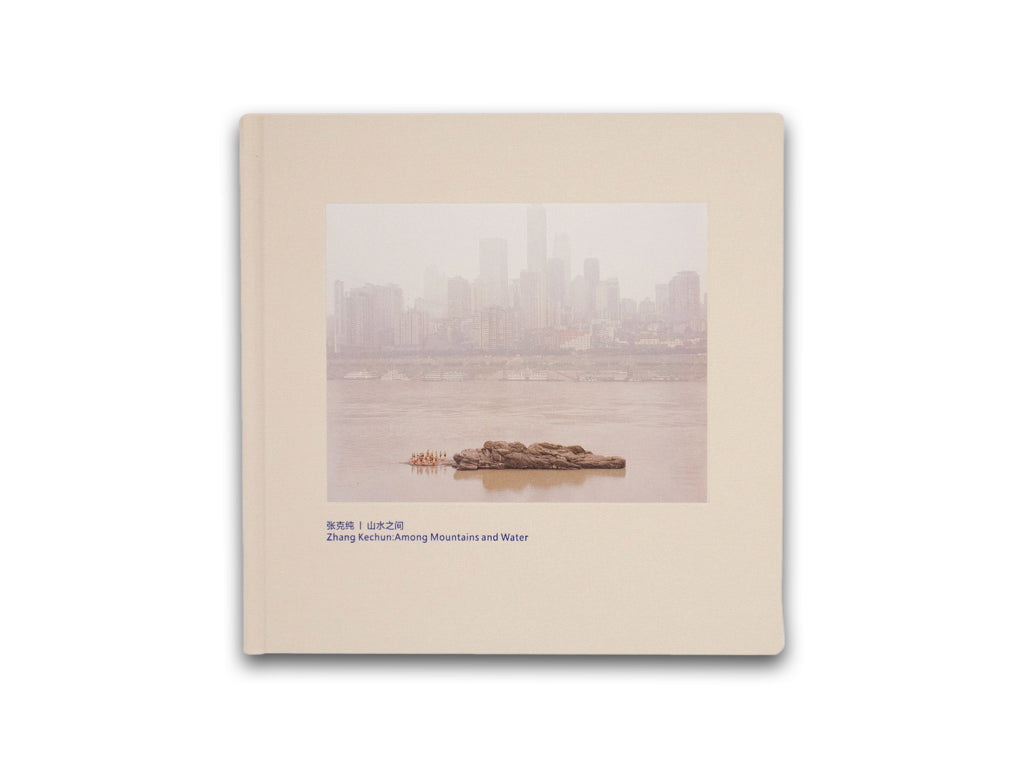









260x260mm | 84頁 | ハードカバー + スリーブケース
山水(Shan Shui)は、いつの時代も中国の人々の心に響くものです。文人たちが自然の風景の中を旅する喜びを示し、「山は道徳を体現し」「水は美徳を包含する」という原則に基づいて内面的な強さを育み、錯覚としての距離を作り出す、これらの要素は中国の山と水を描く芸術において重要な役割を果たしています。
写真家という職業柄、中国を旅する機会があります。そして、現代の私たちにとっての山や水の意味を改めて考えさせられます。中国は急速な発展を遂げており、繁栄の喜びに浸っています。しかし、混乱と破壊は避けられません。その中では、私たちのような人間は、実は塵のように些細な存在です。だから私は、長年にわたって山や水を旅しながら、いまだに山や水に依存している人たちを探してきました。写真を撮るときは、自分を被写体に置き換えてみることにしました。自分が相手の立場になって、自分に代わった人がシャッターを押す。ほんの一瞬ではあるが、彼らの一員になったような感覚ほど、強烈で深いものはないと思っています。私は旅の途上で偶然に出会う美しさに惹かれてきましたが、これらのものはおそらく将来のある時点で消えてしまうのではないかと深く心配しています。
― チャン・ケチュン
チャン・ケチュン(Zhang Kechun)
1980年中国四川省生まれ。2008年にthe National Geographic Picks Global Prize受賞。2012年に三影堂写真賞、2012年と2013年にSony World Photography Awards、2014年にはプthe Prix HSBC Pour la Photographieにノミネートされた。2014年にはArles Discovery Award を受賞しています。
ー
Size: 260 x 260mm
84 pages / Hardcover with Slipcase
Capturing people within landscapes of water and mountains, Zhang Kechun’s series “Among Mountains and Water” is an impressive, inimitable rumination on the relationship between people and their surroundings, set in the rapidly progressing environment of China’s overwhelming prosperity and its destructive growth.
Through his own power of observation and fundamental photographic techniques, Zhang Kechun captures images of reality that seem unreal and even unrealistic because of their scale, their colors, and their subject matter.
“[H]avoc and destruction are inevitable. In this setting, people like us are actually as insignificant as dust. Therefore, over the years of traveling the mountains and water, I have been looking for these people who are still dependent on the mountains and water. When I took photographs, I decided to replace myself with my subjects. I put myself in their position, and the person who replaced me would press the shutter button. I think there is nothing more intense and deeper than the feeling of being one of them, though only for a brief moment. I am pleased with the serendipitous beauty on the road, but I am also deeply concerned that all these things will probably disappear at some point in the future.”
― from Zhang Kechun’s afterword (included in Chinese & English translation)
